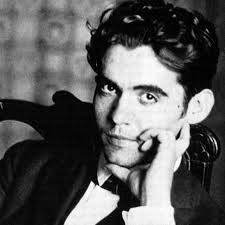In 1492, Columbus sailed the ocean blue
Rather fewer people, outside Spain anyway, know that 1492 was also the year that the last Moorish – Arab and Muslim – part of Spain fell to the Christian reconquest of the country. Ferdinand and Isabella, the ‘Catholic Monarchs’, captured the Emirate of Granada that year, making the entire Iberian Peninsula Christian once more.
 |
| The Alhambra in Granada Fell to Ferdinand and Isabella when they defeated the Moors And gave its name to their decree against the Jews |
One of Spain’s, and indeed the world’s, greatest poets was Federico García Lorca. He was gay, in the early part of the twentieth century, when that was hardly a safe thing to be. He was also from Granada, and replying to a reporter in 1931, he said:
I think being from Granada gives me an inclination towards sympathetic understanding of the persecuted: the Gipsy, the Black, the Jew…, the Moor, that we all have within us.
He might have added “the homosexual” but that might have been dangerous.
 |
| Lorca. Outstanding poet. Champion of the oppressed |
The rebel leader was Francisco Franco, who would hold Spain in a rigid dictatorship for nearly four decades. His regime had no time for a gay champion of underprivileged minorities.
The Nationalists Franco led also believed that the revolt was a crusade for Christian values. So they were particularly ill-disposed towards Lorca for the comments he made during an interview in June 1936, just weeks before the military rebellion started. Asked for his view of the Christian reconquest of Granada, he replied:
It was a very bad moment, though they say the opposite in the schools. We lost an admirable civilisation, a poetry, an astronomy, an architecture and a delicacy unique to the world, and replaced them with a poor, cowardly city, a land of piety in which the worst of the Spanish bourgeoisie operates today.
Unforgivable words for the Nationalists who, just two months later, caught up with Lorca and murdered him.
All this came to back to me while walking in the hills above Valencia the other day.
This region is remarkably fertile. Far more so than the relatively poor country around Granada. It doesn’t rain often, but when it does, the rain comes down like a waterfall, in storms that usually last three or four days.
That means there’s all the water agriculture around here needs. The trick is to manage it well, so that it doesn’t all seep away to the sea in between the storms. And, to this day, the locals are happy to acknowledge that the irrigation systems they use are based on techniques their ancestors learned from the Arabs.
 |
| Irrigation water flowing in the Sierra above Valencia |
My mother had a refrain when talking about Spain. The two great errors of that nation’s history, she maintained, errors which ensured its long-term decline, were defeating the Moors and kicking out the Jews. With them, they lost their best agriculturalists (to say nothing of the cultural wealth Lorca listed) and their most skilled financiers and traders.
So walking along a watercourse in the hills above Valencia isn’t a simple, innocent exercise. It’s redolent with historical meaning. In the Moors, Spain had an outstanding civilisation, which it defeated and overthrew, to its own lasting harm.
In the Jews, it had another great minority with much to contribute, persecuted for merely being other.
And centuries later, Spain produced a magnificent poet, who understood and empathised. Who knew what it was to be oppressed. Who, finally, fell to that very oppression at the hands of a dictator certain he was acting for his white, Christian and Spanish nation.
And who, by doing so, inflicted further damage on that nation, just as the earlier persecutors had.
The saddest aspect of all these memories? The descendants of those self-harming oppressors are ready to do it all again. The Trumps, the Johnsons, the Leaders of the Italian League or of Spanish Vox. They learn nothing and keep making the mistake of thinking that homogeneity is the way to greatness.
Whereas, as Lorca knew, it’s stultifying and ultimately fatal.
 |
| Water, water everywhere. All for the land to drink |
No comments:
Post a Comment